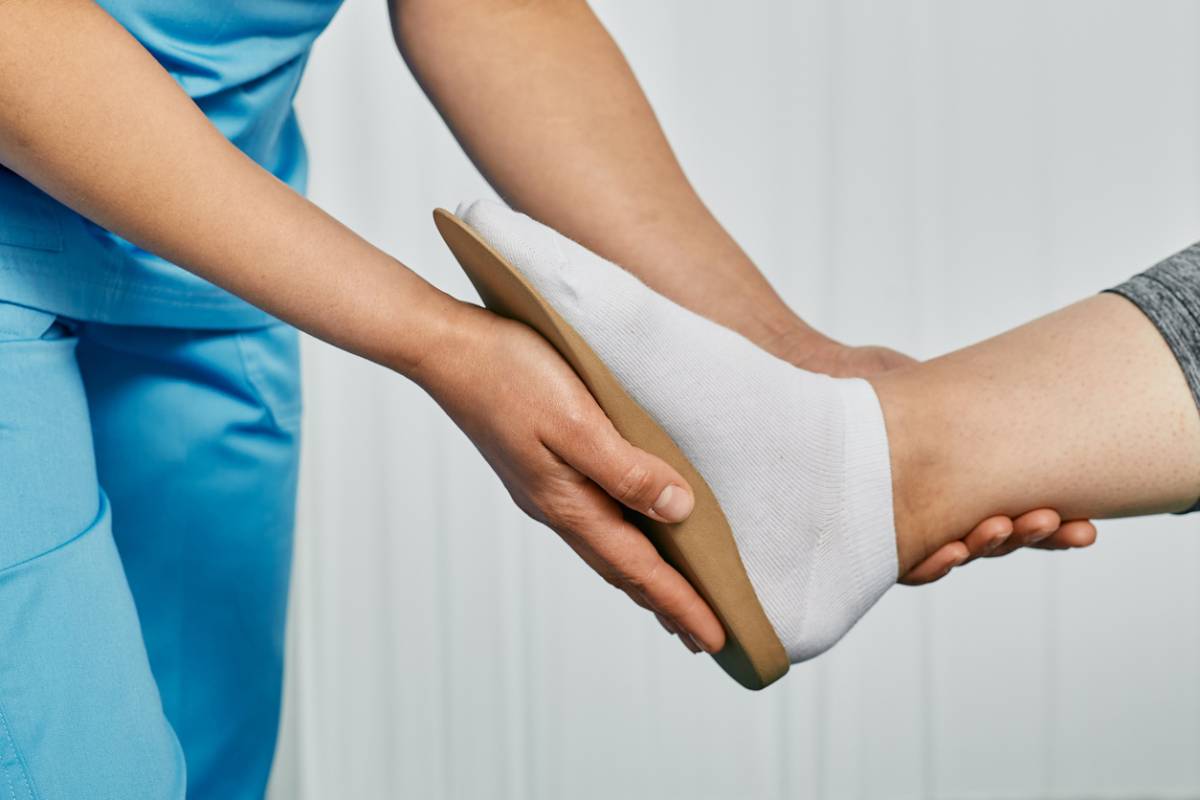For many diabetic patients, one of the most common concerns is the development of foot wounds. From small blisters or cuts to severe ulcers that may lead to infection, and in severe cases, amputation. Because of this, many diabetic patients usually ask their doctor: Are diabetic wounds unavoidable?
A visit to a specialist at a podiatry center can provide a quick answer that may offer reassurance. No, diabetic wounds are not inevitable. Although the risk increases with this type of diabetes, it can be prevented through proper management, regular care, and lifestyle awareness.
Are Diabetic Wounds Unavoidable?
To prevent diabetic foot wounds, it is essential to understand the underlying causes. This disease affects the body in many ways, which makes the feet especially vulnerable.
Poor Circulation
When blood sugar levels are high, it can cause blood vessels to narrow and harden, which can reduce blood flow to the feet. Even minor cuts and blisters can take longer to heal without good circulation.
Nerve Damage (Neuropathy)
One of the effects of high glucose levels is nerve damage, particularly in the legs and feet. Numbness, tingling, and loss of sensation can occur due to nerve damage. Unfortunately, when you cannot feel pain or pressure, you might not notice injuries or sores right away.
Weekend Immune System
The body’s natural healing response may slow down when a person has diabetes. This can make it a bigger challenge for the body to fight infections.
Foot Deformities
The shape of your feet can change with nerve damage and muscle imbalance. This can lead to calluses or pressure points. When calluses or pressure points form, ulcers can form.
With the combination of these factors, diabetic wounds become more common. But with the proper care, they are not unavoidable.
Prevention Starts with Awareness
The most important tool for prevention is awareness with routine care. To reduce your risk of foot wounds, consider the following practical steps.
- Inspect Your Feet Every Day: Checking your feet for cuts, blisters, redness, swelling, or nail problems should be an everyday habit. If looking at the bottoms of your feet is a problem, ask someone to do it for you or use a mirror.
- Keep Your Feet Clean and Moisturized: Wash your feet with lukewarm water and mild soap every day. Dry them gently between the toes. To prevent cracking, apply a light moisturizer to dry areas of the skin. However, avoid applying moisturizer between your toes, as the moisture in this area can lead to fungal infections.
- Choose Proper Footwear: Remember to choose your footwear wisely. Comfortable, well-fitting shoes that protect your feet from injury are always a wise choice. Footwear should always be worn, even at home. Ask your doctor if you should consider getting diabetic shoes or custom orthotics.
- Manage Your Blood Sugar Levels: Maintaining reasonable blood sugar control is crucial for preserving nerve health and promoting circulation. A healthcare team can help you monitor your glucose levels. Remember to take your medications as prescribed, have a healthy diet, and exercise regularly.
- Have Your Feet Examined Regularly: Remember that it is easier to solve a minor problem than a big one, so visit your podiatrist at regular intervals. These visits will enable them to identify and address any issues before they become serious.
What to Do If You Notice a Wound
Diabetic foot wound care begins with a thorough examination of your feet. Checking your feet every day allows you to address problems early on. If you spot a blister, sore, or cut, clean the area gently with mild soap and water, cover it with a sterile bandage, and avoid putting pressure on it. Remember that even minor wounds can easily become something serious for a diabetic patient, so visit your doctor as soon as possible. Early medical attention can help prevent infection and speed up healing.
Visit us for a Customized Treatment Plan
Although diabetic foot wounds are a serious concern and should not be ignored, they are not unavoidable. Consistent care, proper footwear, good hygiene, and effective blood sugar management can help you protect your feet and maintain mobility for years to come.
If you or someone you love has diabetes, remember that partnering with a specialist is essential. Remember that minor injuries can quickly become a serious threat. If you notice any cracks, calluses, swelling, or drainage, do not wait for tomorrow. The earlier you see us, the sooner we can provide you with customized treatment. Call us or click on the Request Appt button on the upper right-hand corner of our website to schedule an appointment.


